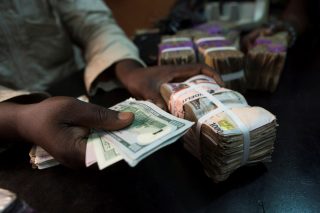Following an intense crackdown on money laundering and speculative currency trading in Tanzania and the East African Community (EAC) at large, Dar’s government has requested for new players in the foreign exchange (forex) space of the country.
Over the past seven months, more than 100 private foreign exchange bureaus have been closed down across the country in a bid to put an end to illegal activities – theft, money laundering, and counterfeit money fraud – among forex dealers.
The clampdown took place in Dar es Salaam and Arusha between November 2018 and February this year and was led by The Bank of Tanzania (BoT). Presently, The EastAfrican reports that only three licensed bureaus are operating across the country.
However, commercial banks have been granted approval to provide the service while many of the bureaus could soon be allowed to resume operations. Also, ahead of the entrance of new entities and licensed banks, the apex bank has announced strict new regulations to govern the sector.
The new requirements are detailed in the Foreign Exchange (Bureau de Change) Regulations of 2019, BoT’s Manager for Microfinance and Bureau De Change Operations, Victor Tarimu, revealed. Hence “people are welcome to open forex shops in their private capacities after fulfilling the criteria from the central bank.”
New regulations
The new regulations include an increased minimum capital requirement of $433,000 for all forex businesses. This is three times more than the previous amount, $130,000. For existing forex traders, a three-month ultimatum has been given for raising of their minimum capital.
More so, forex traders are now mandated to carry out money transfers only through locally licensed banks, financial institutions, mobile network operators and international transfer agents. This is subject to conditions prescribed in the regulations and according to BoT, is due to the risks associated with such services, such as theft and the issuance of counterfeit currencies
The bank, however, did not place any guiding rates for foreign currencies as at the time of the announcement last week. It only removed the $10,000 limitation on the amount that can be sold to a resident of Tanzania travelling abroad, while adding that further dealings in unauthorized bureaux de change activities would be considered a criminal offence which may lead to monetary fines or imprisonment.








